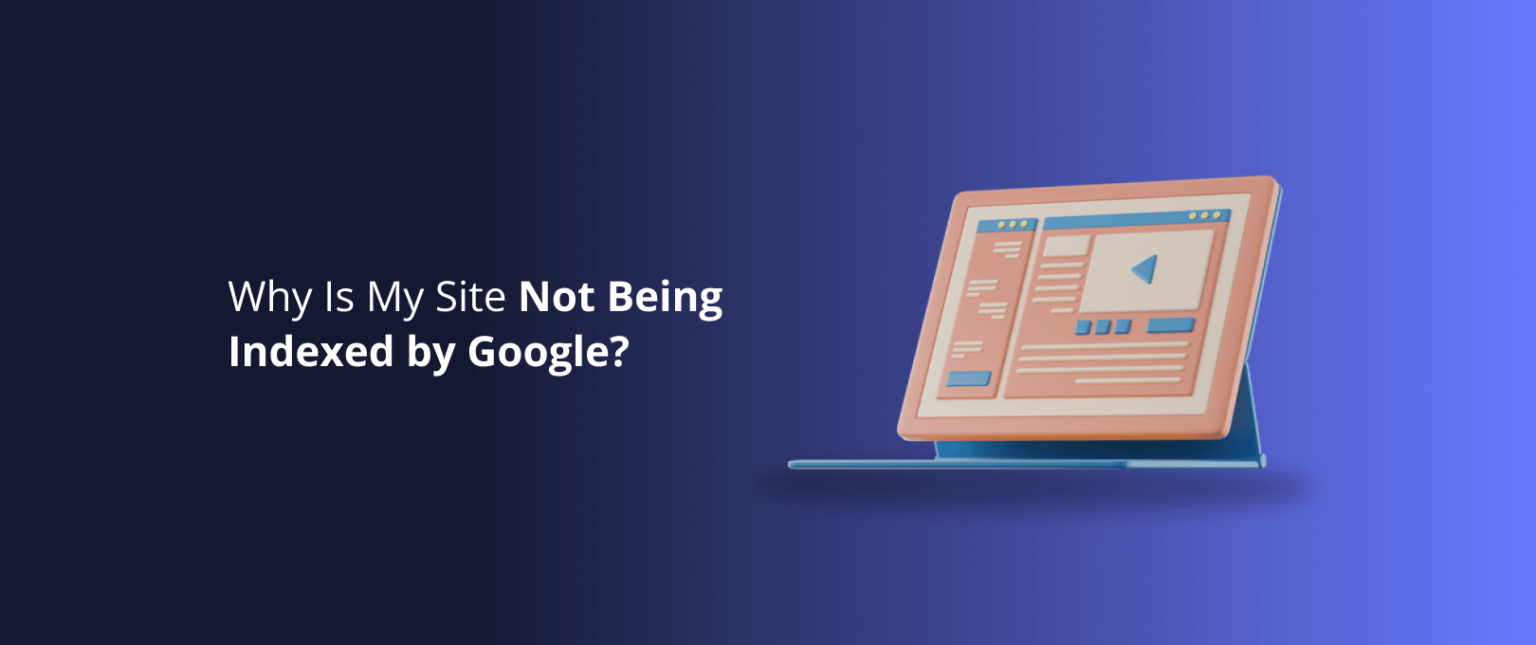Table of Contents
Discovering that your website is absent from Google’s search results can be disconcerting. If you’re facing this issue and wondering why your website is not indexed by Google, you’re not alone. Let’s explore the potential reasons behind this problem and delve into steps to resolve it.
New Website

If your website is new, it may take time for Google to discover and index it. While Google’s crawlers diligently explore the web, indexing a new site can require patience, often spanning days or even weeks. Be patient and allow Google the time it needs to recognize and index your site.
Technical Issues

Technical glitches on your website can impede Google’s indexing process. Common issues include problems with your robots.txt file, improper use of meta tags, or server-related issues that restrict Google’s bots from accessing your site. Conduct a comprehensive technical audit to identify and rectify any hindrances to indexation.
Poor Quality Content

Google prioritises high-quality, relevant content in its search results. If your website features subpar, duplicate, or irrelevant content, Google may opt not to index it. Review your content and ensure it delivers value to your audience. Strive for unique, informative, and engaging content that aligns with your audience’s interests.
Manual Action or Penalty

Google may manually penalise a website for violating its Webmaster Guidelines. This could stem from practices like keyword stuffing, cloaking, or engaging in dubious link schemes. Check Google Search Console for any manual actions against your website and take corrective measures. Upon resolving issues, request a review from Google to lift the penalty.
Noindex Tag

Your website might contain a “noindex” tag, instructing search engines not to index its pages. This tag could have been erroneously added to your website’s code, preventing Google from crawling and indexing your content. Scrutinise your website’s HTML code for the presence of the noindex tag and remove it if found.
Low Domain Authority
Websites with low domain authority may struggle to garner Google’s attention, particularly in competitive niches. Focus on bolstering your website’s authority by cultivating high-quality backlinks, publishing valuable content, and engaging with your audience on social media. As your website’s authority grows, Google will be more inclined to index its pages.
XML Sitemap Issues
An XML sitemap aids search engines in comprehending your website’s structure and navigating its pages efficiently. If your website lacks an XML sitemap or if it’s incorrectly configured, Google may encounter difficulties in indexing your content. Generate a meticulous XML sitemap for your website and submit it to Google Search Console for seamless indexation.
Conclusion
if your website is absent from Google’s index, several factors could be at play. Start by addressing technical glitches, ensuring top-notch content, and resolving any manual actions or penalties imposed by Google. By proactively enhancing your website’s indexability and authority, you can enhance its visibility and attract organic traffic from search results.
If your website is not indexed by Google, it can pose a significant challenge to your online presence and hinder potential traffic and engagement. There could be various reasons why your website is not appearing in Google search results. One possibility is that Google hasn’t discovered or crawled your website yet. This could be due to a lack of inbound links, which serve as pathways for Google’s crawlers to find and index new content. Additionally, if your website is relatively new or lacks authority, it may take some time for Google to prioritize crawling and indexing its pages.
Technical issues can also prevent your website from being indexed. These could include problems with your website’s robots.txt file, which tells search engines which pages to crawl and which to ignore, or issues with the website’s meta tags or canonical tags that affect how search engines interpret and index your content.
Another potential reason for your website not being indexed is if it has been penalized by Google for violating its guidelines. This could occur if your website has engaged in practices such as keyword stuffing, cloaking, or other forms of manipulation to artificially boost its search engine rankings.
To address these issues and improve your website’s chances of being indexed by Google, there are several steps you can take. First, ensure that your website is accessible to search engine crawlers by checking for any technical errors and resolving them promptly. Submit your website to Google Search Console and request indexing for any new or updated content to expedite the crawling process.
For More Information Please Visit These Websites Viprow And Vecteezy

